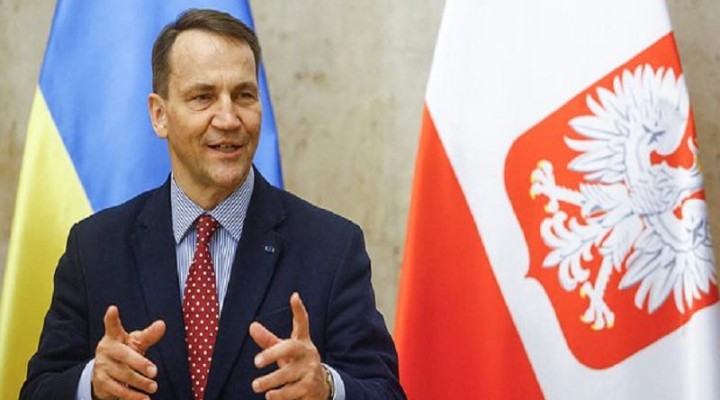Sikorski Tried Justifying Poland’s “Russian Influence Commission” On False Pretexts

Any politician or activist who supports traditional values, is against illegal immigration, and questions any aspect of NATO’s proxy war on Russia through Ukraine is at risk of being defamed and even persecuted.
Polish Foreign Minister Radek Sikorski tried justifying his country’s contentious “Russian influence commission” on false pretexts in an interview with Gazeta Wyborcza. He deflected criticism that it’s hypocritical for Prime Minister Donald Tusk to revive his predecessor’s commission, which Tusk criticized at the time as a witch hunt against the opposition, by misleadingly claiming that they’re different. According to Sikorski, the previous one could exclude politicians from office, but the current one can’t.
The reality is that the former government’s commission initially had those powers, but they were later rescinded by an amendment under Western pressure, thus making their findings nothing but a scarlet letter against those who were supposedly implicated as operating under Russian influence. Furthermore, the results came out after October’s parliamentary elections, while the latest commission’s are expected before next May’s presidential election that the ruling parliamentary coalition desperately wants to win.
Sikorski also added that his government’s commission will provide recommendations on what the prosecutor’s office should do, so it’s theoretically possible that people can be charged, unlike the prior one. In the event that members of the conservative-nationalist opposition are implicated by the report, not to mention if they’re charged with some sort of crime, then that could reshape voters’ perceptions of their party ahead of the upcoming elections and thus possibly help the ruling coalition gain an edge.
Moving along, Sikorski later shared his opinion that the “Law & Justice” (PiS) party that used to rule the government and the smaller Confederation party are both under Russian influence due to their conservative-nationalist views, which vary between them but nevertheless share some commonalities. In his opinion, “Putinism” is defined as being critical of the EU (which he deems “anti-European”) and illegal immigration, “machismo”, and in support of traditional values, which align with those two’s views.
He then accused Russia of “focusing on these voters” inside of Poland through its alleged propaganda as well as its supposed meddling operations, one of which he said was its weaponization of the Belarusian migrant crisis in order to boost the “far-right” ahead of early June’s European Parliamentary elections. If such forces win, then Sikorski predicted that “this will blow up the EU”, and it’s this sort of chaos that Russia supposedly wants in order to present its socio-political system as superior to the West’s.
His scandalous attack against the conservative-nationalist opposition echoes European Commission President Ursula von der Leyen’s from last week, who included Confederation in her list of parties that she described as “friends of Putin” that “want to destroy our Europe.” PiS wasn’t mentioned, but that might have been strategic since its potential return to power could see the party embrace so-called “Polexit” rhetoric – irrespective of sincerity and chances of succeeding – as revenge in that event.
Confederation is a much easier target too since it’s consistently been against the “Ukrainization” of Poland, which refers to the last two governments’ embrace of large-scale immigration from Ukraine that’s laying the seeds for changing the country’s largely homogenous demographics. Even though PiS began to reconsider its full-fledged support for Ukraine near the end of its time in power, largely for electoral reasons ahead of fall’s polls, it’s never been against “Ukrainization”.
Returning to the ruling liberal-globalist coalition’s revival of its conservative-nationalist predecessor’s “Russian influence commission”, Sikorski’s sharp words suggest that the outcome is already predetermined, namely that it’ll implicate PiS and Confederation as Russia’s “useful idiots”. Some members might also be accused of colluding with its security services and accordingly charged, thus reshaping voters’ perceptions ahead of May’s presidential election if they’re PiS officials.
The false pretext upon which those two will predictably be smeared by the state as “Russian agents” and some of their members possibly charged concerns their conservative-nationalist policies. This therefore makes the latest commission nothing but another witch hunt against the liberal-globalists’ opponents. Any politician or activist who supports traditional values, is against illegal immigration, and questions any aspect of NATO’s proxy war on Russia through Ukraine is at risk of being defamed and even persecuted.
https://korybko.substack.com/p/sikorski-tried-justifying-polands
 TheAltWorld
TheAltWorld 
0 thoughts on “Sikorski Tried Justifying Poland’s “Russian Influence Commission” On False Pretexts”